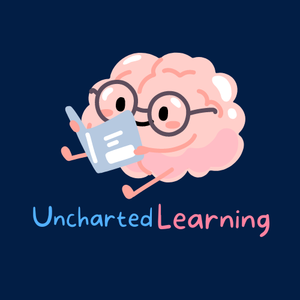Deschooling is a vital process for families shifting from traditional education to homeschooling, especially when adopting the unconventional and liberating approach of unschooling. By understanding the essence and steps of deschooling, families can better navigate this transition, unlocking the freedom and personalized learning opportunities that unschooling offers.
Transparency matters: Some links may provide me with a commission. Your clicks are vital in supporting the ongoing efforts here. Thank you for your support!
Deschooling: Breaking Free from Traditional Mindsets
Deschooling is not merely a break from formal education; it's a mental and emotional shift away from traditional schooling paradigms. Families often need time to unlearn rigid structures and expectations associated with conventional education. This phase allows both parents and children to decompress from any negative experiences tied to traditional schooling and rediscover the joy of learning without external pressures.
During deschooling, families explore learning opportunities beyond textbooks and classrooms. Activities such as nature walks, creative projects, and open-ended discussions become essential in fostering a renewed sense of curiosity and intrinsic motivation.
The Deschooling Process: Embracing Flexibility

Deschooling varies in duration for each family, as it is a personalized journey based on individual experiences and needs. The process involves letting go of preconceived notions about education and recognizing that learning is not confined to a specific time or place.
Parents play a vital role in supporting their children through deschooling by providing a rich and diverse environment that encourages exploration. This may involve exposing them to various subjects, hobbies, and real-world experiences, allowing the child to rediscover their interests and passions.
Transitioning to Unschooling: Empowering Child-Led Learning

Deschooling naturally paves the way for unschooling, an approach that places trust in a child's innate ability to learn through life experiences. Unschooling embraces the philosophy that education is a continuous, self-directed process rather than a structured curriculum.
In unschooling, learning happens organically as children pursue their interests. Parents act as facilitators, offering guidance, resources, and opportunities for exploration. Subjects emerge naturally from the child's curiosity, fostering a deep and genuine understanding of the world.
The Unschooling Advantage: Nurturing Lifelong Learners

Unschooling encourages a love for learning by allowing children to follow their passions. This child-centric approach empowers them to take ownership of their education, promoting critical thinking, creativity, and problem-solving skills. Unschoolers often develop a strong sense of self-motivation and independence, traits that serve them well throughout life.
Transitioning from deschooling to unschooling is not a one-size-fits-all process. Families navigate this journey at their own pace, adjusting their approach based on the unique needs and interests of each child. Ultimately, the deschooling and unschooling transition fosters an environment where learning becomes a joyous, lifelong adventure rather than a prescribed obligation.



























































































































































